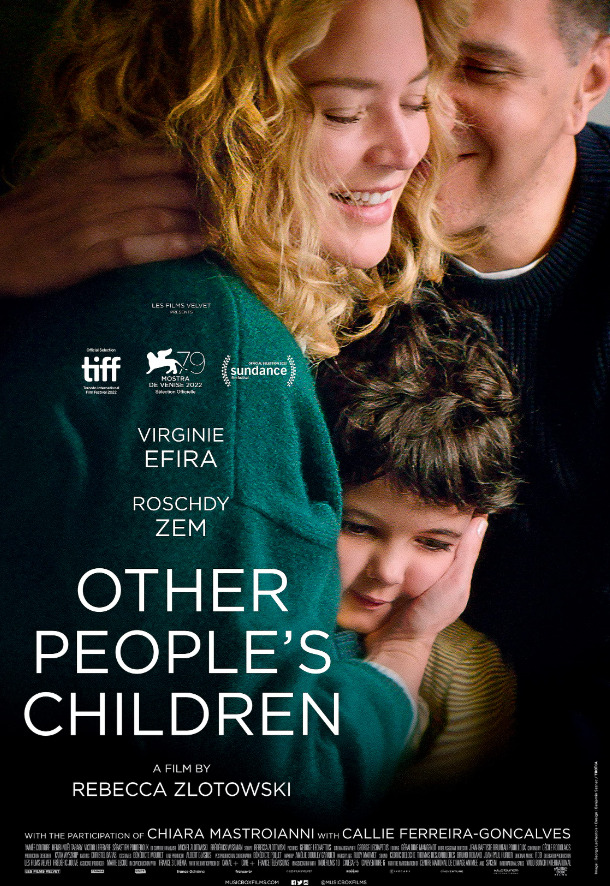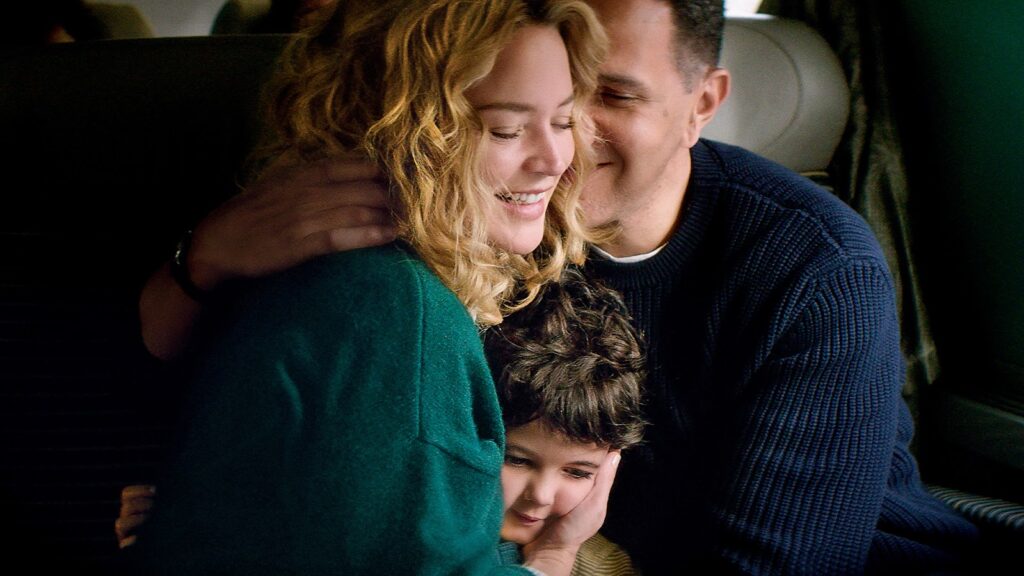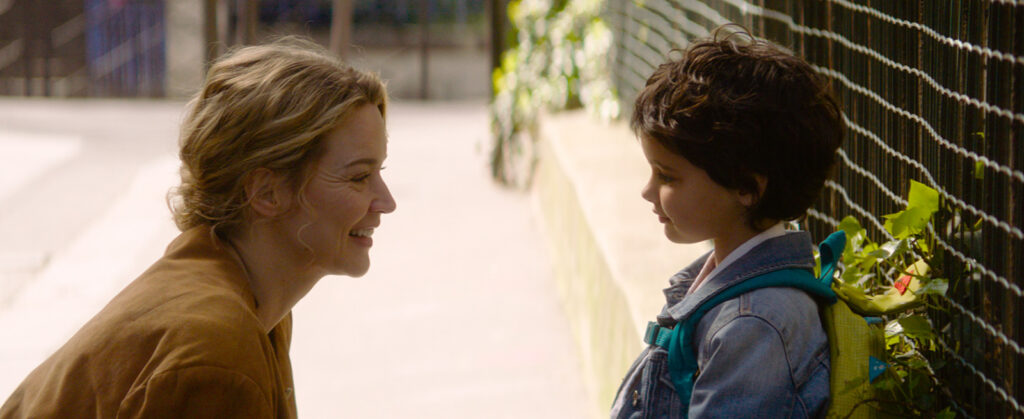
When an actress astounds in a particular role, it’s very worth watching for what they do next. Virginie Efira was a revelation (religious pun intended) in 2021’s Benedetta, directed by Paul Verhoeven, portraying a nun who believes herself to have true divine inspiration. She’s been touring the festival circuit since with Madeleine Collins and Paris Memories, as well as Other People’s Children, which played at Venice, Toronto, and Sundance. The latter represents a subtle, layered interpretation of a woman with ideas of what she wants her life to be who doesn’t have nearly as much control over her fate as she would like.

Efira stars as Rachel Friedmann, a teacher who enjoys her life and her work. Her curiosity about having a child has lingered for some time, and is reignited in an unexpected way when she begins dating Ali (Roschdy Zem). While he is initially reluctant to introduce her to his young daughter, Leïla (Callie Ferreira-Goncalves), once he does, Rachel develops a close connection with her. Though she remains all too aware that Leïla is not actually her daughter, Rachel begins to see her as part of a life she wants, naturally assuming that role and forming the kind of bond that serves as precisely the reason partners wait to ensure their relationships are serious enough before bringing preexisting children into the mix.
There are moments of humor and levity in this film, but it’s far from a romantic comedy. That stems partly from the fact that this isn’t a story about Rachel and Ali getting together, even if that is central to it, but rather about the way that getting to be, or even just feeling like, a parent changes and affects Rachel. Ali is merely the conduit to that, and while raising a child with a partner has its appeal, what hits Rachel most is her ability to be seen in a maternal way by a child, even if it’s not her own. This film communicates that longing and sensitivity very well.

There is a welcome realism to Other People’s Children that doesn’t add or inflate drama to anything, and instead presents a moderately complicated relationship that definitely affects more than just Rachel and Ali. The fact that Leïla’s mother is nothing but nice and kind to Rachel means that any potential failure of the dynamic will be due to Ali if he believes that Rachel shouldn’t be a complete part of his family, or somehow misinterprets that warmth as a threat to his own ego or stability. He dismisses how Leïla’s occasional reminders that Rachel is not her mother hit her, while Rachel in turn takes them too much to heart since she is still a young girl yearning for her parents to be together and doesn’t wield those insults nearly as sharply as they sting.
Efira’s performance is reminiscent of a similarly straightforward turn by another French-speaking actress known for powerhouse roles, Léa Seydoux, in One Fine Morning. Both women take everyday characters and make them vibrant, interesting protagonists who self-sacrifice for the sake of those around them and don’t always recognize their own value. Less is most definitely more, since, much of the time, Rachel is simply a viewer within other people’s stories, forced to be polite and magnanimous, even if the people she’s engaging with don’t afford her the same courtesy or respect. Efira confidently leads a film from writer-director Rebecca Zlotowski that feels honest and true, capable of coherent and engaging storytelling without needing to elevate the drama.
Grade: B+
Check out more of Abe Friedtanzer’s articles.
Other People’s Children opens in theaters on Friday, April 21st.

